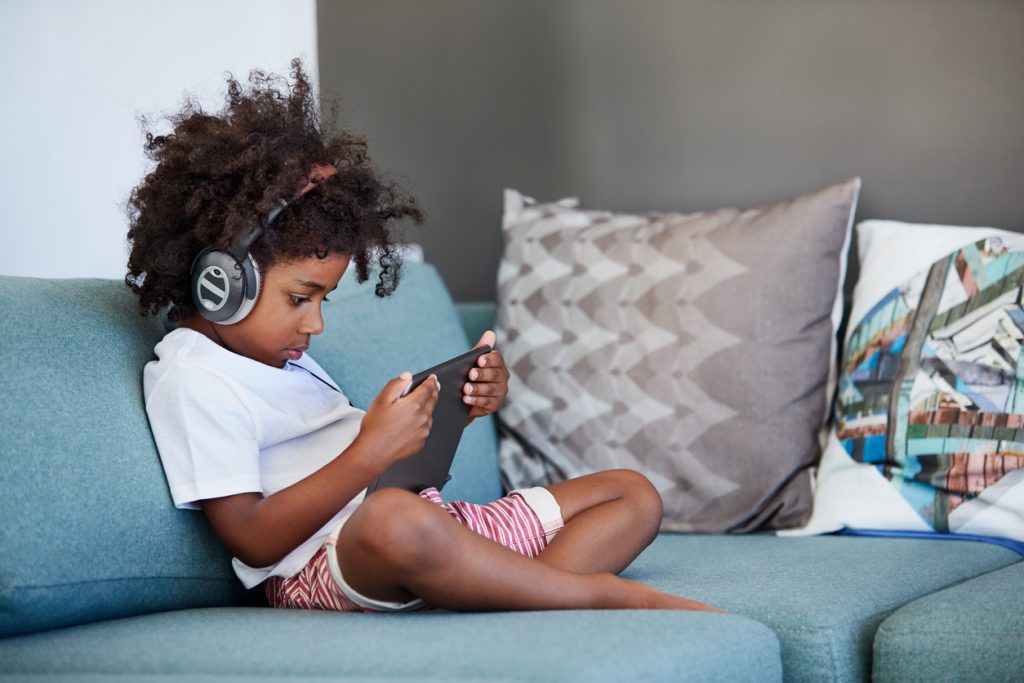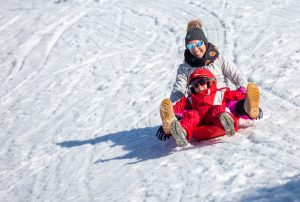Screen Time For Kids: Apps & Activities You’ll Actually Want to Encourage

I think every parent has questioned the amount of screen time they allot to their children. We’d like it to be on the low end, but we also want our kids to grow up comfortable with tech and to not be excluded because their parents won’t let them play the latest video game or watch a popular show on Netflix.
By no means have I got this whole screen time thing figured out or perfected. If I had, I’d make a million bucks on a speaking tour, no doubt, as bewildered parents struggle to find answers in a digital world. I do, however, have a few screen activities that I actually encourage with my kids.
That means fewer video games, more variety of digital pursuits. Less Netflix, more independent thought. Here are a few that work for my household:
Learning a language: My New Year’s resolution was to learn Spanish. I adore languages and revelled in the idea of adding a new one to my list. However, my kids are beating me to it. My son and his friend also decided to learn Spanish, using the free app Duolingo. He then convinced his sister to give it a whirl, and now they’re both speaking to me and I don’t understand a word. They’re far from fluent, but they usually put in 15-20 minutes a day and having fun with it. Sure, there are some gaming elements in the app, but they’re learning something interesting and useful and showing up their mom.
Checking the weather: Like many Canadians, I check the weather often, needing to try to predict if school buses will be cancelled, how many pairs of socks I should wear, and when not to slip into my new white sneaks in case of a torrential downpour. So I know what the weather is like, but I want my kids to be able to start to figure that out as well. They can have a weather app on their phones, and I’m teaching them to start to put real-world experience to the numbers they see on the screen – so they can appreciate what I mean when I talk about wearing a neck warmer because of wind chill, skipping the sandals on rainy days, and not wearing black jeans on the hottest days of summer. I’m teaching them to think, predict and plan for the weather using their devices so I’m not still telling them what to wear on their 30th birthday.
Answering their own questions: I love my kids’ fascination with the world around them. They’re starting to take an interest in different countries, history, scientific anomalies, and so much more. They also think that I know a lot more than I do. Lately, my answer to so many of their questions has been, “I don’t know”. There is a chance that I once did know the answer they seek, but it has fallen into the pit of forgotten and irretrievable pieces of information that masquerades as my memory these days (it’s a popular place). So I encourage them to take to Google with a well-thought-out question and to share the answer with us all. It’s not perfect, but we are all learning new things.
Figuring out the schedule: When kids spend time at more than one home, such as in the case of divorced parents and other alternative living arrangements, it can be confusing to know where they are going and when. “Where am I tonight?” is a common refrain, as is “Am I with you this weekend?”. We’ve put the entire schedule on Google Calendar so that the kids can check for themselves which of their homes they’ll be at on any given day, along with special events. It helps them to be able to plan their time and feel a bit less adrift amidst a challenging schedule with lots of transitions.
Google Earth: My son is getting very interested in geography and loves to look up locations on Google earth. He also checks in with some of his favourite places – the cottage, favourite down south destinations, and places where his far-flung relatives live – which helps him feel more connected with these people and places. He’s also getting a great handle on where places are and what they look like. Paired with his massive world map, he’s getting a bit more of a view of the world from his location, and his imagination is running wild.
Writing skills: Somewhere along their development, both of my kids became writers – bona fide quirky, funny, interesting writers. I know that because their texts to me are legendary. No single word texts or abbreviations for them! Yes, there are emojis, but my son’s observations and witticisms make him a preferred pen pal. My daughter’s exuberance and super helpful “mood meter” (describing how she is feeling at the time of the text) make my heart sing. I encourage our text exchanges because they are honing their powers of expression. And I still believe that great communication skills are key in this rapidly evolving world.
So yes, I try to limit video games. I attempt to broaden their horizons when it comes to Netflix shows (the Dragon Prince and Merlin are hits with my son). But I also believe in teaching them real-life skills – yes, using a device – that will help my kids become independent, resourceful, educated and stable beings.
I don’t see a tech-free future for us, but I’d like their devices to be used for good, not for Fortnite.












